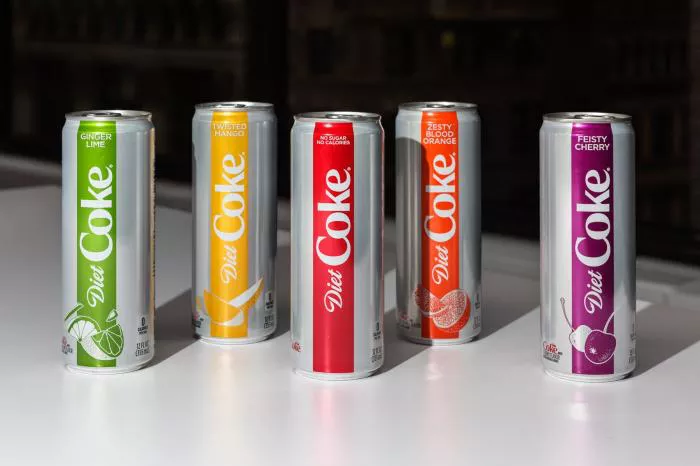As a breastfeeding mother, you may wonder what you can safely consume while nursing. Diet Coke, a popular sugar-free soft drink, raises questions about its safety for breastfeeding. This article explores whether Diet Coke is safe for breastfeedng, its potential effects, and guidelines for consumption.
Understanding Diet Coke
Diet Coke is a sugar-free beverage that uses artificial sweeteners to provide sweetness without calories. The primary sweetener in Diet Coke is aspartame. Other ingredients include carbonated water, colorings, caffeine, and flavorings.
Ingredients of Diet Coke
Aspartame: This is a low-calorie sweetener that is about 200 times sweeter than sugar. It is commonly used in many diet sodas and foods. Some individuals may experience sensitivity to aspartame, but it is generally recognized as safe by health authorities.
Caffeine: Diet Coke contains caffeine, which is a stimulant. Caffeine is found in many soft drinks, coffee, and tea. While moderate caffeine consumption is usually considered safe during breastfeeding, excessive intake may affect your baby.
Phosphoric Acid: This ingredient is used for flavor and to preserve the beverage. It is found in many sodas and is generally recognized as safe in small amounts.
Flavoring and Coloring Agents: These are used to enhance the taste and appearance of the drink. They are also typically recognized as safe.
The Safety of Aspartame
Aspartame has been extensively studied for safety. Regulatory bodies like the U.S. Food and Drug Administration (FDA) and the European Food Safety Authority (EFSA) have deemed aspartame safe for general consumption, including for breastfeeding mothers.
Studies indicate that aspartame does not pass into breast milk in significant amounts. This means that the exposure to your baby through breastfeeding is minimal.
However, some individuals may have a rare genetic disorder called phenylketonuria (PKU) that makes it difficult to process phenylalanine, a component of aspartame. Mothers with PKU should avoid aspartame.
Caffeine Considerations
Caffeine is another key ingredient in Diet Coke. The American Academy of Pediatrics states that moderate caffeine intake (about 300 mg per day) is generally considered safe for breastfeeding mothers.
One can of Diet Coke (12 fl oz) contains approximately 46 mg of caffeine. Therefore, consuming a few cans daily is within the safe limit for most breastfeeding mothers. However, it is important to monitor your total caffeine intake from all sources, including coffee, tea, and chocolate.
Excessive caffeine consumption can lead to irritability and sleep disturbances in your baby. If you notice that your baby seems unusually fussy or has trouble sleeping, consider reducing your caffeine intake.
Possible Effects on Breastfeeding
Hydration
Breastfeeding mothers need to stay hydrated. While Diet Coke can contribute to your daily fluid intake, it should not replace water and other nutritious beverages. It is best to maintain a balanced approach to hydration by consuming plenty of water.
Nutritional Value
Diet Coke does not provide any essential nutrients. It is calorie-free but also lacks vitamins and minerals necessary for both mother and baby. A healthy diet rich in fruits, vegetables, whole grains, and protein sources is important for your overall well-being and milk production.
Allergies and Sensitivities
While most people can safely consume Diet Coke, some may have allergies or sensitivities to artificial sweeteners, caffeine, or other ingredients. If you notice adverse reactions in yourself or your baby after consuming Diet Coke, consider eliminating it from your diet.
Recommendations for Breastfeeding Mothers
Moderation is Key: If you enjoy Diet Coke, moderate consumption is generally safe while breastfeeding. Limit your intake to a few cans a week to minimize any potential risks.
Balance with a Healthy Diet: Prioritize a balanced diet that includes nutrient-dense foods. This will help support your health and milk production.
Monitor Your Baby’s Behavior: Keep an eye on your baby’s reactions after you consume Diet Coke or any other caffeinated beverage. If you notice increased fussiness or sleep disturbances, consider reducing your caffeine intake.
Stay Hydrated: Ensure you drink plenty of water alongside any soft drinks. Staying hydrated is essential for milk production and overall health.
Consult Your Doctor: If you have specific concerns about your diet while breastfeeding, consult a healthcare professional. They can provide personalized advice based on your health and dietary needs.
Alternatives to Diet Coke
If you are concerned about the safety of Diet Coke, there are plenty of alternatives that you can consider:
Sparkling Water: For a refreshing and hydrating alternative, consider sparkling water. You can add a splash of fruit juice for flavor without added sugars or artificial sweeteners.
Herbal Teas: Many herbal teas are caffeine-free and can be a soothing option. Look for blends that are safe for breastfeeding.
Infused Water: Infusing water with fruits, herbs, or vegetables can provide flavor without any sweeteners. This is a healthy and hydrating option.
Homemade Lemonade: Make a simple homemade lemonade using fresh lemons and water. This will provide a refreshing drink with natural sweetness.
See also: Is It Safe To Drink Ginger Tea While Breastfeeding
Conclusion
In conclusion, Diet Coke can be enjoyed in moderation while breastfeeding. Its key ingredients, such as aspartame and caffeine, are generally recognized as safe by health authorities. However, it is crucial to maintain a balanced diet, stay hydrated, and monitor your baby’s behavior.
If you have specific dietary concerns or notice any adverse reactions in your baby, consult a healthcare professional. Staying informed about what you consume will help ensure a healthy breastfeeding experience for both you and your baby.
By making mindful choices and prioritizing a nutritious diet, you can navigate your beverage options while enjoying the benefits of breastfeeding.
Related topics:


